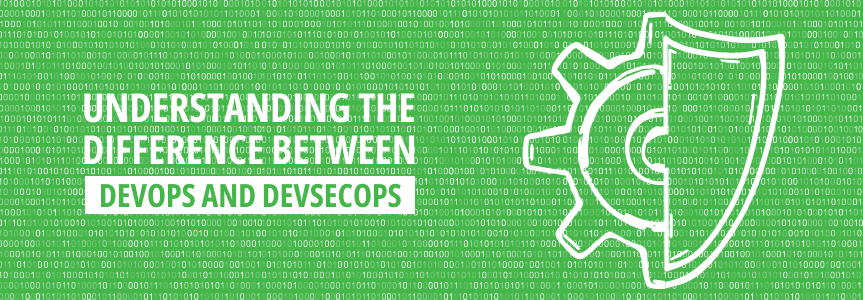Understanding the Difference Between DevOps and DevSecOps
DevOps and DevSecOps are core components of modern software delivery – but that doesn’t mean they’re the same thing. On the contrary, they are distinct concepts, and it’s critical for software delivery teams to understand the nuances of each of them in order to build efficient, scalable and secure delivery pipelines.
Keep reading for a breakdown of the similarities and differences between DevOps and DevSecOps, and where both concepts fit within the context of modern software delivery.
What is DevOps?
DevOps is an approach to software delivery that emphasizes collaboration between development (“dev”) and IT operations (“ops”) teams.
The key driving idea of DevOps is that when developers and IT operations engineers work closely together, they can anticipate and respond to each other’s needs more effectively. In other words, developers can design and implement software that is easier for IT Ops teams to manage, and IT Ops teams can provide valuable feedback to developers about which application issues they are experiencing in production and how to improve software.
What is DevSecOps?
DevSecOps is a strategy that emphasizes collaboration between developers, security teams and IT operations teams.
In this sense, DevSecOps builds upon the DevOps concept by bringing security into the loop. The goal of DevSecOps is to achieve better security outcomes by ensuring that security experts can provide guidance and feedback at all stages of the software delivery process. When done well, DevSecOps helps teams to identify and resolve security issues as early as possible in the software delivery lifecycle – when the risk of exploitation is lower and the issues are cheaper and easier to fix. The earlier in the development lifecycle that security issues are resolved, the more cost effective for an enterprise.
Similarities between DevOps and DevSecOps
At a broad level, there are key similarities and areas of overlap between DevOps and DevSecOps:
- Both are concepts, not specific practices: DevOps and DevSecOps are similar in that both represent philosophies or strategies more than they constitute specific practices. There are many tools and methodologies for implementing both DevOps and DevSecOps; neither concept can be operationalized by simply deploying a specific tool or creating a particular process. That said, high-level practices like automation are typically important to both DevOps and DevSecOps.
- Both focus on collaboration across the SDLC: DevOps and DevSecOps both encourage collaboration between relevant stakeholders at all stages of the software development lifecycle (SDLC). They’re not limited to a particular phase of software delivery.
- Both add efficiency and scalability: There is significant overlap in the benefits provided by DevOps and DevSecOps. By improving collaboration, both concepts can help to make software delivery cycles more efficient and scalable.
Thus, DevOps and DevSecOps are similar at a conceptual level, as well as with regard to the benefits they provide.
Main differences between DevOps and DevSecOps
Still, it would be a mistake to conflate DevOps with DevSecOps. DevSecOps can be seen as an evolution of DevOps, bringing security seamlessly into the existing processes and workflows.
Differing areas of focus
The main difference between DevOps and DevSecOps is that DevOps focuses only on collaboration between software developers and IT operations teams. In contrast, DevSecOps brings security experts into the fold.
To put this another way, DevOps (at least in its traditional, narrow definition) is concerned solely with improving software delivery. DevOps doesn’t address security in any particular or explicit way.
DevSecOps, however, does place security front and center. DevSecOps isn’t concerned with software delivery in general; its main focus is on ensuring that applications are secure at all stages of the development lifecycle.
DevOps comes before DevSecOps
Another important difference is that, while you can do DevOps without DevSecOps, you can’t really implement DevSecOps without first implementing DevOps. The reason why, is that DevOps is foundational for creating an efficient, continuous software delivery lifecycle. If you want to integrate security into all stages of the software delivery process, you first need to create a software delivery process oriented around DevOps.
Differences in DevOps and DevSecOps tools
A third key difference between DevOps and DevSecOps lies in tools. Although there is no specific set of tools that you need to implement either concept, the tools you’d use for DevOps may be different from those that enable DevSecOps, depending on their support for the security capabilities you require.
Key categories of DevOps tools include solutions like Continuous Integration servers and release automation platforms. With DevSecOps, primary tools typically include solutions like Software Composition Analysis (SCA) scanners, which can detect open source software vulnerabilities within applications at multiple stages of the SDLC, and Cloud Security Posture Management tools, which check for configuration oversights that could create security risks.
You need DevOps and DevSecOps
Because DevOps and DevSecOps address different priorities, most teams today should put both concepts into practice. They should embrace DevOps as a means of adding efficiency and scalability to the software delivery lifecycle, while simultaneously using DevSecOps to improve the security of their software. They can’t choose just one or the other.





